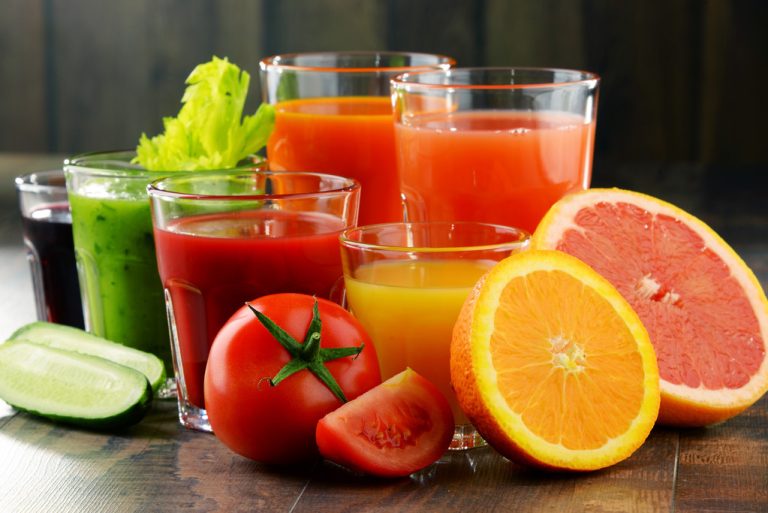Almost everyone has had stomach pains and problems with the intestines – be it nausea, cramps, flatulence or other complaints. Diet itself is not always the reason, but if you eat right, you can counteract and prevent this.

For a healthy gut: These foods help with digestive problems
To support your intestinal flora and protect yourself from intestinal problems, you can use some foods:
1. Leaven against harmful bacteria
Sourdough contains a bacterium called “Lactobacillus reuteri” that has a probiotic effect. According to physician and best-selling author William Li, sourdough bread can help fight, inhibit, or kill harmful bacteria in the gut. It is also said to help against salmonella infections and reduce the risk of stomach ulcers, for example.
2. Dark chocolate for good nerves and muscles
Dark chocolate is already known to have a high magnesium content. So it is good for nerves and muscles, helps with stress and tastes great on top of that. Even iron and zinc are present in cocoa. But the digestion also benefits from the snack, because in moderation it has an anti-inflammatory effect and boosts the metabolism.
3. Cabbage for detoxification of the intestines
Although many types of cabbage are not always popular, they have a very positive effect on the intestinal flora. They reduce bad or toxin-producing gut bacteria. It doesn’t matter which type of cabbage is eaten – from broccoli or sauerkraut to Brussels sprouts and pak choi. Red cabbage made from red cabbage is often found on the plate in Franconia.
4. Juices stabilize your intestines
Juices are already known to play into the hands of the intestine: cranberry juice, pomegranate juice or grape juice can be used to stabilize and improve the intestinal wall. But beware: They contain a lot of sugar – so enjoy them in moderation.
5. Walnuts help blood vessels
The nuts contain omega-3 fatty acids and have an anti-inflammatory effect on the inner walls of our blood vessels. They can also inhibit so-called Clostridium bacteria.
6. Kiwis aid in the digestive process
They also help with the digestive process and have an antibacterial effect thanks to their many vitamins and antioxidants.
7. Artichokes really boost digestion
They feed the friendly intestinal bacteria and, as a natural prebiotic, have a nurturing effect on the intestinal flora. The daisy family is particularly rich in fiber.
8. Onions fight inflammation in the gut
The leek plant is bursting with antioxidants and stimulates your bacteria in the colon to produce healthy short-chain fatty acids.
9. Black coffee stimulates intestinal motility
With coffee you train the muscles of your small and large intestine. As a result, food pulp is transported faster. As a result, you experience less gas and constipation. And best of all: the bitter substances in the drink reduce cravings for sweets.
10. Flaxseed keeps you full for a long time and promotes regular bowel movements
The dietary fibers in flaxseed swell up in the stomach and intestines and thus keep you full for a long time. In addition, the seeds make the stool bulky and soft, thus promoting regularity.
11. Yogurt helps fight inflammatory bowel disease
Yogurt contains friendly bacteria in the form of probiotics, which can help fight inflammatory bowel disease, constipation, and diarrhea.
12. Turmeric prevents the formation of cancer cells in the intestine
The ginger plant has a preventive effect against the formation of cancer cells, which has already been proven in the laboratory. The risk of colon cancer is therefore demonstrably reduced.
13. Jerusalem artichoke stabilizes blood sugar levels
The root vegetable contains the important dietary fiber inulin (not to be confused with insulin), which stabilizes blood sugar levels and prevents cravings and diabetes.
14. Flea seed husks as a proven home remedy for constipation
The Indian flea seeds are a natural swelling agent and make the stool softer. This promotes digestion and reduces intestinal transit time.
15. Buttermilk and kefir soothe and strengthen the intestinal flora
Buttermilk and kefir contain probiotic microorganisms that can have a positive effect on your intestinal health.

